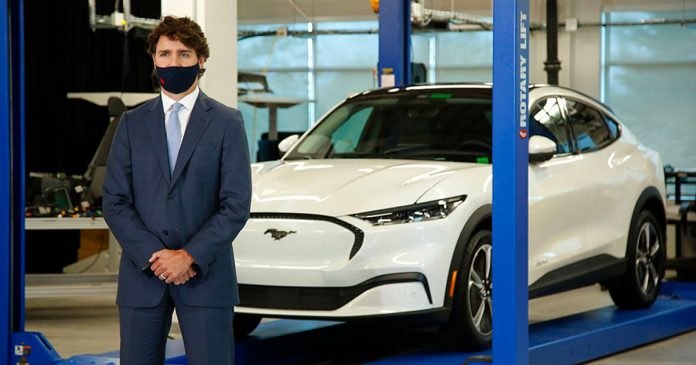An internal briefing note from the Department of Industry called it unrealistic to shift entirely to electric vehicles. The note was acquired by Blacklock’s Reporter, and comes despite the department’s ongoing plans to reduce emissions.
The note, titled Fleet Management Renewal Strategy: Information For The Deputy Minister’s Office, cited problems with electric vehicles’ range and a lack of charging ports.
“While an accelerated plan to shift entirely to green energy net zero emissions is appealing, it is not realistic at this time … for the following reasons: Advancement in the automotive technology is not readily available for all operational requirements; restrictive range capabilities and lack of access to public charging infrastructure in most of Canada remains a challenge; and lack of access to repair networks.”
The Liberal government has committed to converting a minimum of 70% of all government vehicles to zero emissions by 2030.
Currently, the Department has a fleet of “245 vehicles including 89 pickup trucks, 55 vans and 30 SUVs.”
The note observed that staff issued government vehicles “require the use of specially-equipped SUVs, full size pickups and medium or heavy duty trucks.”
“Operational requirements, for example size of vehicles, restrictive range capabilities and safety features, are not entirely met by net zero emission vehicles,” staff said.
“Green technology is not readily available.”
Department staff also complained about a lack of charging ports for electric vehicles “in most of Canada” and very few auto shops that can repair electric vehicles.
Another April 13, 2021 report by the Commons environment committee found that replacing gas vehicles with electric cars would be too expensive for most Canadians.
The report, titled The Road Ahead: Encouraging The Production And Purchase Of Zero Emission Vehicles In Canada, concluded that “higher battery costs were the main cause of the higher price” for consumers.
In October 2020, it was revealed that the federal government spent $186 million of taxpayer funds on rebates for electric vehicles under its Incentives for Zero-Emission Vehicles program introduced in 2019.






















